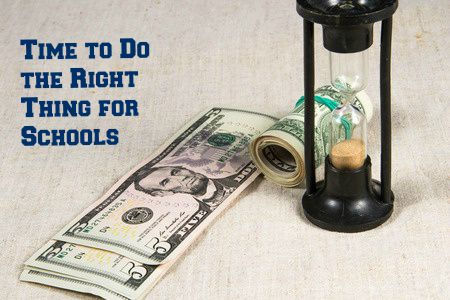Imagine IF. . .Shazam! We Actually Fix the System!
- Barbara Frandsen
- Jul 17, 2022
- 2 min read

Imagine if . . . Texas had enough money to update all public schools, pay salaries appealing enough to catch the eye of the brightest and best graduates, and provide state-of-the-art materials and equipment. Imagine if . . . in such a world, private and parochial schools also requested state funding. I might stand at the front of the line to say, “Of course, Texas can fund private as well as public education.” Unfortunately, we do not enjoy this luxury in Texas. So, how does reality look?
Reality means that August heat now rages with full force in Texas. In a short time, public school doors will open for any and all children. Regardless of economic status, race, gender, academic or athletic ability, health, or behavioral issues thousands of children can and will stream through the doors of public education.

Most of us agree that currently, our teachers struggle to make financial ends meet. (Please reject the myth that teachers leave school at 2:45 and have summers off.) On their inadequate salaries, most teachers spend over $500.00 a year on basic school materials. Thirty percent of our teachers have second jobs. Many schools need repairs and upgrades. And yet, some citizens and lawmakers want money to go for private and parochial school vouchers.
Don’t get me wrong. I do not oppose private education. Parents who seek religious instruction have every right to pursue an environment that includes daily classes in religion. My only hesitation comes when we use taxpayer money, designated for public schools, to pay for non-public entities. Please consider the following reasons for concern.
Texas cannot afford to fund two school systems, one for private schools and another for the public sector. Although we greatly appreciate the partial restoration of the 2011 budget cuts, Texas still ranks in the bottom quartile of states in per pupil funding.
Public schools receive federal and state money for children with disabilities. It is highly unlikely that private schools will be able to provide equivalent services. In addition, special education students who leave the public system lose federal protections.
Concerns remain due to the lack of accountability for voucher dollars. All schools receiving money should be held accountable.
When children leave the district, the costs for teachers’ salaries, building maintenance, and utilities continue. Those who claim schools will save money when a child leaves have been misled.
Vouchers primarily help families who can afford expensive private schools without assistance. On the other hand, families living in poverty will probably not be able to make up the difference between required tuition and voucher dollars.
The major question facing Texas should be, “What would it take to truly repair the ills of public education? Instead of taking money, time, and talent away from public schools, the state could use this opportunity to fix the system. Texas has money. Do we have the will to get the job done?
Work Cited:
Vouchers. “Texas Coalition for Public Schools”. http://www.coalitionforpublicschools.org/vouchers/




Comments